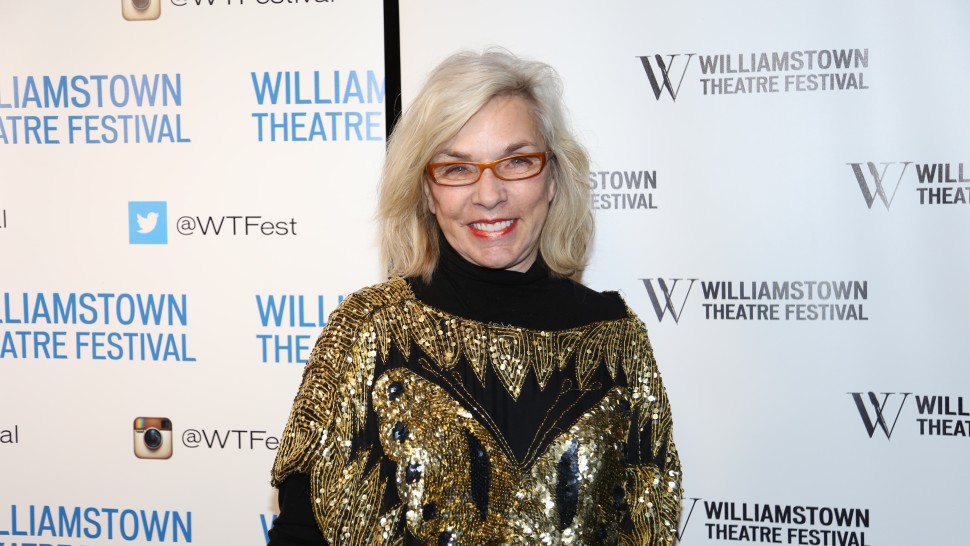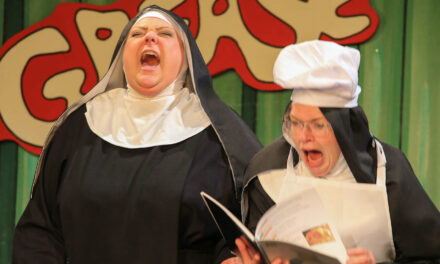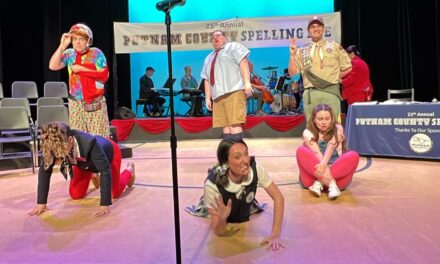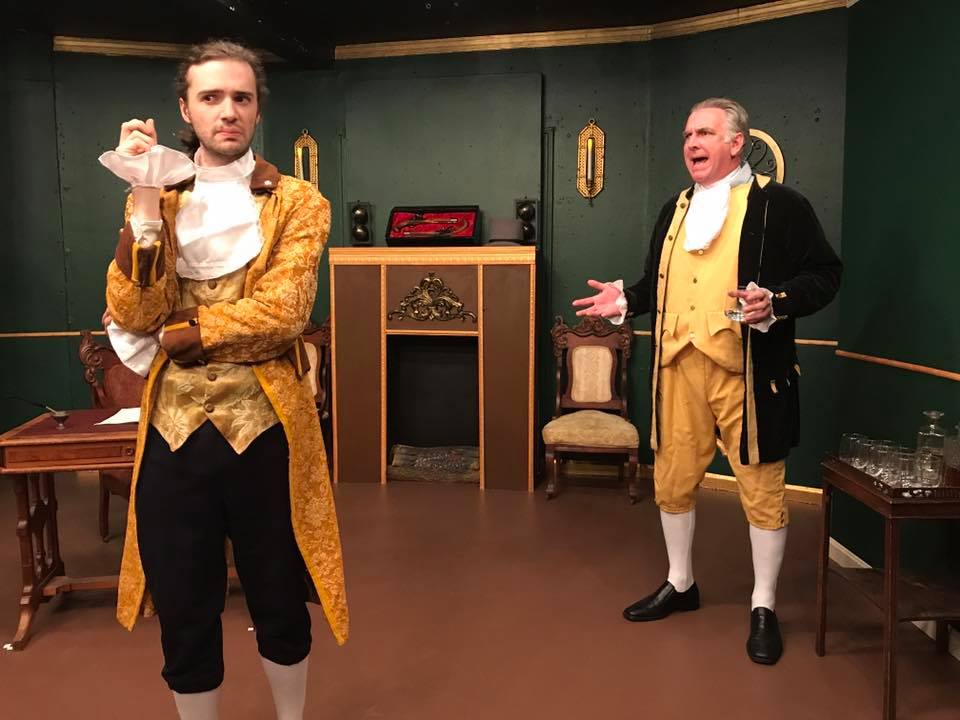[box_dark]Support Arts-Louisville.com: click here to make a donation![/box_dark]
Playwright Marsha Norman. Photo:Marc J. Franklin
Getting Out
By Marsha Norman
Directed by Reed Gabhart
Review by Kathi E. B. Ellis
Entire contents are copyright © 2018 by Kathi E. B. Ellis. All rights reserved.
Theatre making is also the making of community, and the St. Francis School tradition of producing alumni shows is clearly succeeding by this measure. Four of the students listed in the cast list for this year’s Getting Out have appeared in all four of the biennial productions, and many other bios list multiple alumni productions.
The SFS production grows out of the middle school experience, with alums in both high school (St. Francis and others) and college participating on and off stage, and a couple being beyond undergraduate studies. While some students have continued their pursuit of performing arts beyond middle school, several are now pursuing different fields and return to this alumni production avocationally.
I’m always a fan of producing local playwrights, and it’s good to see a Marsha Norman production on an area stage, particularly such an early script and one, sadly, that has as much resonance today as at its Actors Theatre premiere in 1978. While some of the cultural references have become cliché or dated, the systemic issues revolving around incarceration and violence against women keep this script very much relevant to the same issues forty years later, in 2018.
The Baron’s Theatre in Whiskey Row downtown is a challenging space, with no wings and little backstage space, and a small stage. Getting Out requires multiple settings, especially during the flashbacks, Director Reed Gabhart makes good use of this small area, amplifying the stage by using both entrance doors to the theatre, and playing within the aisle and on the small ‘bridge’ from audience to stage. Unfortunately, the limited lighting equipment does not illuminate these areas. Nonetheless, the new apartment of the recently-released Arlene and the cell of incarcerated Arlie-in-memory co-exist mostly successfully on the stage.
The acting company is clearly committed to telling this raw story with authenticity and, within the wide range of experience on stage, this is an earnest approach to the characters and situations. The program notes that some key roles are played by different actors each weekend. Seeing the show on closing night I got to see the “weekend two” cast in the roles of Arlene, Mother, Carl, and Ruby. It’s not clear whether this double-casting was owing to a desire to involve as many alums as possible or due to busy summer schedules and availability for rehearsal and performance. The fact that several performers were on performance two, rather than show four, did impact the flow of the production. Some scenes were not as polished as others and the pacing for many scenes was unfortunately uniform.
The mirrored roles of Arlene today, and the troubled memory-figure of Arlie were played by Amelia Dimas and Teagan Morrison respectively (Hannah Jones played Arlene weekend one.) While it was always clear that Arlie/Arlene are the same character, I could have wished for more intentional echoes of their physicality and voices between the two actresses, enhancing their shared life. Morrison, particularly, created a compellingly troubled young woman.
Second weekend Ruby, Zoe Koss, was engagingly dynamic, fully inhabiting the character of mostly-reformed ex-con with a big heart. This role was played by Lilly Young the previous weekend. Current middle school student Jackson Sleadd fully embraced the bratty qualities of Arlie’s school mate Ronnie.
The roles of Bennie and Carl are challenging for young men who are growing up in a #MeToo world. Scripts like Getting Out ask these actors to turn back the clock to inhabit characters whose attitudes to women are no longer tolerated. Both Aaron Lattis and Hayden Jones, respectively, committed to the intentions of the not entirely-straight prison guard and former boyfriend/pimp, and yet these performances frequently felt like that they were just performances, and not fully inhabited characters. Of course, it can be argued that Carl is always performing… (The role of Carl was played by Gray Thurstone the first weekend.)
Supporting roles of Evans (Drew Perkins making his stage debut), Doctor (Jillian Morrison), Mother (Margot Bond/Paige Didier), School Principal (Katie Mushkin), and Warden (Jackson Guarino-Sanders) filled out Arlie’s past life and the first twenty-four hours of Arlene’s release back into society.
The program lists the support that comes from alums as production staff and supporting the production in many ways; and the closing night of the show was sold out. The multigenerational support for the biennial alumni production suggests that this is becoming a tradition in the St. Francis community. And it adds another theatrical event to Louisville’s increasingly full summer calendar of performing arts.
Getting Out
July 26, 27 & August 3 &4, 2018
St. Francis Drama Project
At The Baron’s Theatre
131 West Main Street
Louisville, KY 40202
Kathi E.B. Ellis is an associate member of the Stage Directors and Choreographers Society and a member of Lincoln Center and DirectorsLabChicago. She has attended the La MaMa Directing Symposium in Umbria, Italy and is featured in Southern Artistry, an online registry of outstanding southern artists. Her directing work has been recognized with nominations for South Florida theatre’s Carbonell Award. Locally, Kathi is a member of Looking for Lilith Theatre Company, a founding principal of StageLab theatre training studio, and part of ShoeString Productions, an informal producing collective. She has written book reviews and articles for Southern Theatre, the quarterly publication of the Southeastern Theatre Conference, and was a contributing writer for JCPS’ textbook for the 11th grade Arts and Humanities survey course and for YouthArts Tapestry, a Kentucky Arts Council publication.





